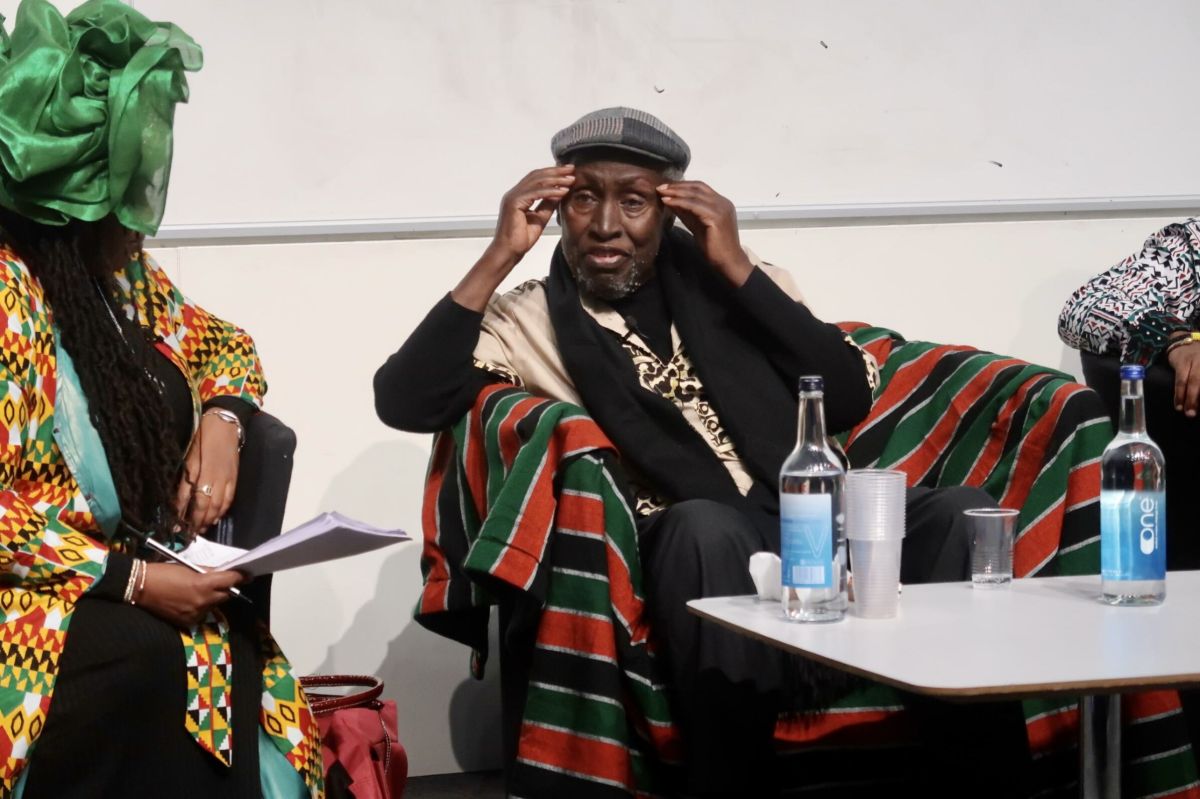Ngũgĩ wa Thiong’o, the ‘Giant of African Literature,’ discusses normalised abnormalities in Manchester
By Kailyn Huang

Anyone who has had an interest in African literature knows Ngũgĩ wa Thiong’o. In his sixty-plus-year career, the Kenyan author has published a multitude of works, ranging from mature anthologies to captivating children’s stories. He made history in 1964 with the publication of his novel, Weep Not, Child, the first English-language novel written and published by an East African.
Since then, he has made innumerable contributions to world literature. Although he is a Distinguished Professor of Comparative Literature and English at the University of California, Irvine (UCI), Ngũgĩ is known for his leadership in the movement to decolonise Africa, particularly through literature.
This work led him to the University of Manchester on October 12 2023, where he delivered a lecture on ‘Language and Normalised Abnormalities in the World Today.’ The event was chaired by Professor Gary Younge and moderated by Esther Stanford-Xosei.
At 85 years old, Ngũgĩ is sharp as ever. He is prone to laughter–and often the cause of it. Before his speech, Ngũgĩ rose from his chair to perform a little jig, wiggling his legs and arms gleefully. Even when discussing the sombre legacy of colonialism, he interjected moments of comedy, laughing at his own playfulness and eliciting amusement from the crowd. His voice carries the gravelly tone of age, and his words may come slowly, but they are punctuated with lively gestures and the unwavering fervour of his sparkling eyes.
For Ngũgĩ, decolonisation begins in the mind. As for himself, he has long since discarded his colonised name and opted to write in his native language, Gĩkũyũ. In explaining these decisions, he cited the historical marginalisation and outright prohibition of languages during the era of colonisation, which led to the erosion and loss of cultures. “In America, on plantations, African names were banned… if you were on the plantation of the Brown, then you had to say ‘I’m Brown.’ That is normalised abnormality,” Ngũgĩ remarked.
He contended that keeping the language of the oppressed alive can, to some effect, reclaim what was lost during colonisation and slavery. Yet, he observed that English, the so-called “language of power,” is often favoured by those who can afford to learn it.
“Some of the most expensive private schools in Kenya, run by Africans for African children, follow the British curriculum,” Ngũgĩ revealed. “There is something wrong about this… African parents are proud that their children do not know their mother tongue.”
According to Ngũgĩ, the normalised abnormalities of 19th-century colonialism are very much alive, especially in Africa. He continues to advocate for the education and usage of African languages, having written essays like Decolonising the Mind: The Politics of Language in African Literature (1986), which urges African writers to cast aside the colonial leash and produce works in their native languages.
When questioned about the accessibility issues that writing in marginalised languages prompts, Ngũgĩ replied with a solution: translation. Notably, he established UCI’s International Center for Writing and Translation in 2002, declaring that “translation is the language of languages.”
Among the many insights Ngũgĩ shared, this one phrase resonated most profoundly: “If you know all the languages of the world, but you do not know your mother tongue, that is self-enslavement.”







